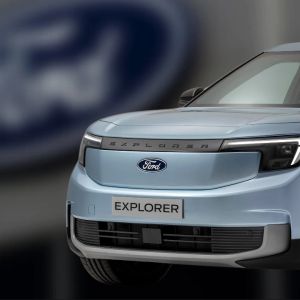Ford’s EV battery plant in Michigan is back on track
2 min read
Due to a revision in the U.S. tax bill, Ford Motor Co. will be able to resume development of its Michigan battery plant, buoyed by the expectation that the plant will qualify for federal tax credits. Ford Motor Co. announced on Tuesday that its $3B electric vehicle (EV) battery plant in Marshall, Michigan is “on track” and expected to qualify for valuable federal production tax credits, after several key revisions were made in a sweeping tax and budget bill passed by U.S. lawmakers. Ford’s EV battery plant in Michigan is back on track Ford’s Marshall facility was announced in February 2023, and is expected to create 1,700 jobs in Michigan. The plant will manufacture lithium iron phosphate (LFP) battery cells using technology licensed from CATL, the world’s largest EV battery maker. The battery plant, now 60% complete and scheduled to begin production in 2026, had been at risk of losing federal incentives due to its partnership with Chinese battery giant Contemporary Amperex Technology Co. Limited (CATL). Despite CATL’s critical role in global EV supply chains, its ties to China have sparked bipartisan concern in Washington. Several lawmakers have questioned whether American taxpayer dollars should support a project that uses Chinese intellectual property. Back in May, Ford warned that language in the House version of the legislation could compromise the Marshall project. The proposed provisions would have restricted production tax credits for any battery components made by certain Chinese companies or produced under a licensing agreement with them. That clause would have disqualified Ford’s use of CATL technology. But the final version of the legislation, which was passed recently, revised that language. Now, Ford says it is confident the Marshall plant will qualify for the production tax credit, which supports the domestic manufacturing of EV batteries. “This is a win for our customers and a win for American competitiveness,” the company said in a statement. The new U.S. tax bill restructures EV incentives In 2023, Michigan reduced its incentive package for the project after Ford scaled back expected production volumes to align with slowing EV demand nationwide. The company cited the declining consumer interest in EVs, alongside high production costs, as reasons for its more cautious rollout. However, the new U.S. bill offers significant new benefits to automakers. In addition to preserving production tax credits for battery manufacturing, even when the technology involves Chinese partners like CATL, the law eliminates penalties for failing to meet Corporate Average Fuel Economy (CAFE) targets. Industry analysts have stated that while the law’s changes remove near-term obstacles for automakers, they also raise questions about the long-term strategy. “This is a necessary compromise to maintain momentum in EV manufacturing,” a policy analyst familiar with the legislation said. “But over time, the U.S. will still need to invest heavily in its own battery technology and supply chains if it wants true independence.” KEY Difference Wire helps crypto brands break through and dominate headlines fast

Source: Cryptopolitan



